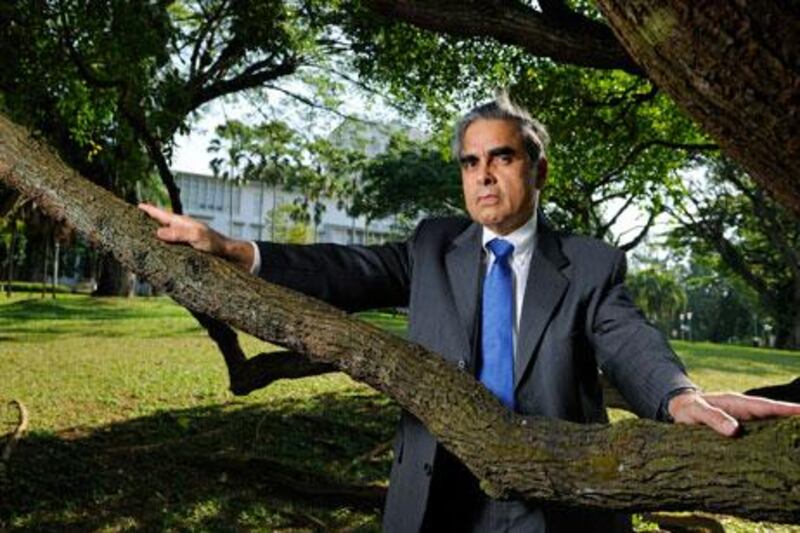Development of the economy is based on belief it can happen
Vision 2030: More on Abu Dhabi's model economies
An island of inspiration helps fuel Abu Dhabi's ambition Singapore is the only Asian model among four that the architects of the capital's Economic Vision 2030 are looking to, Frank Kane reports. Read article
Controlled movement is the key for Singapore Transport strategy is what makes Singapore tick commercially, both in terms of relations with the outside world and in enabling citizens of the crowded island to go about their daily business. read article
Singapore can teach capital useful lessons in how to develop as a major financial The financial sector in Singapore has made great strides to become the leading centre for South East Asia, and is challenging Hong Kong as the most important financial location in east Asia. Read article
Lion city sheds its shackles at night Singapore is one of the main business centres in South East Asia. The city state is also an ideal place for the business traveller to put his feet up. Read article
[ More business ]
Along with tiger balm and noodles, Professor Kishore Mahbubani, 63, is one of Singapore's better known exports, although he has never moved permanently from the city.
The dean of the Lee Kuan Yew School of Public Policy at the National University of Singapore is a well known figure on the international circuit of intellectual power summits, institutes and think tanks, and had a long stint in the Singaporean foreign service, topping it with a term as the permanent representative at the UN.
He was also named by the magazine Foreign Policy as one of the top 100 global thinkers last year, and is the author of several learned books on global political economy.
Born in Singapore of Indian parents, his rise reflects the country's meritocratic ideology. As its leading intellectual and enthusiastic advocate, he deserves to be listened to.
"No country has developed as rapidly or as efficiently as Singapore. In 1965 it had a per capita income roughly the same as Ghana; in 1995 it overtook Britain. In social development too, it has been a real success story. No country has reduced infant mortality rates as fast as Singapore," he says.
So what can the Middle East and the UAE learn from Singapore's success story?
"Economic development can only happen when you believe it can happen," Prof Mahbubani says. "The Asian countries have been able to break out of the cycle of poverty to become the world's most dynamic economies, so the Asian experience is more relevant to the Middle East than the western model."
He says the Arab world could learn from what he calls the "seven pillars of Western wisdom": free market economics; science and technology; a culture of pragmatism; meritocracy; a culture of peace rather than warfare; the rule of law; and education.
But these concepts can be adapted to include Sharia qualities in law and education, he insists. He says the Arab world could borrow and adapt concepts from countries such as Malaysia and Indonesia.
"If you are trying to reorientate the Arab world, go to Asia, not to the West. Europe is just a museum. Most trade routes in the 19th century were across the Atlantic, now they are in east Asia. Above all, if you want to prevent political problems, have rapid economic development."
* Frank Kane





